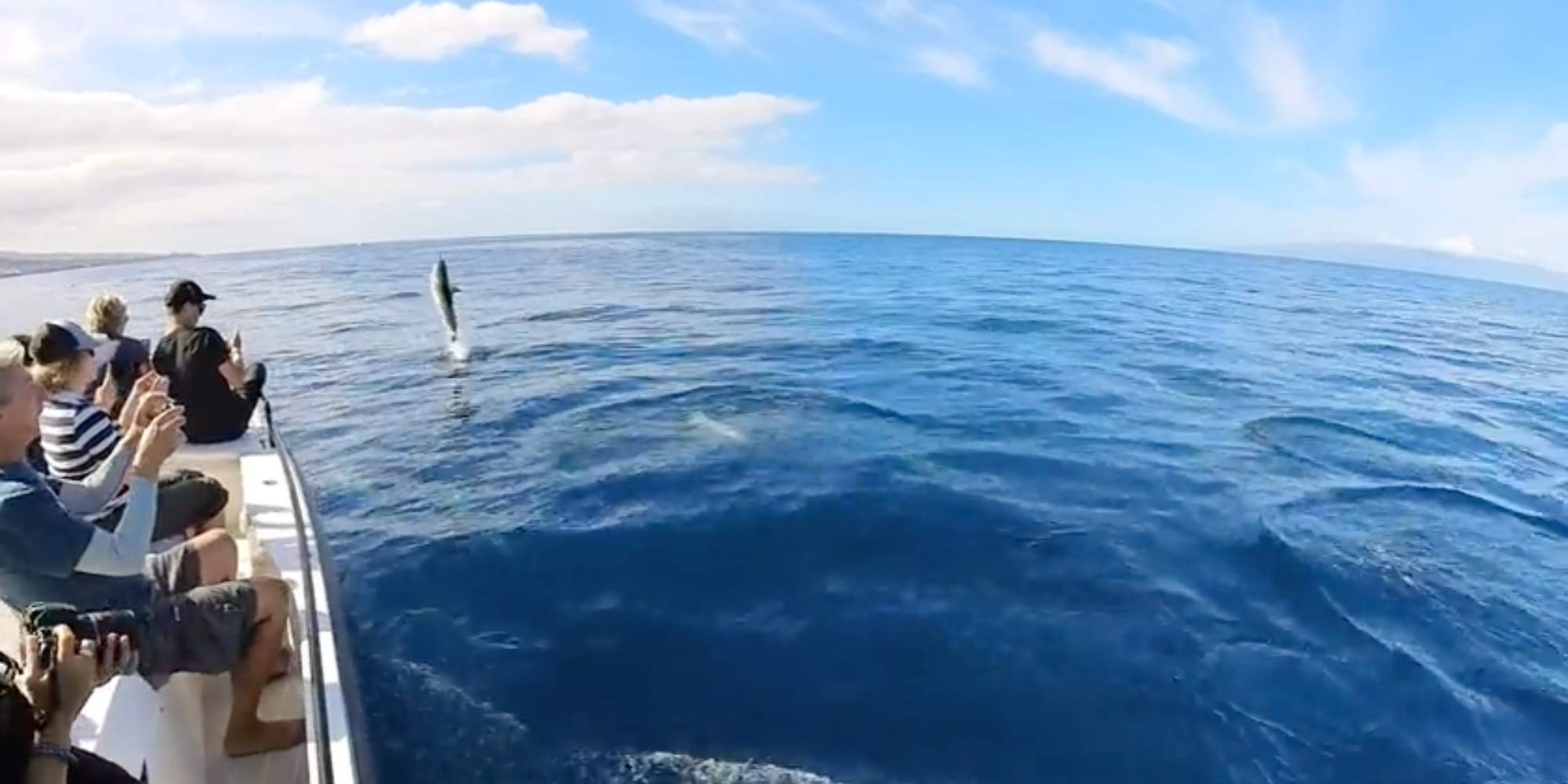WeWhale is proud to launch its short documentary, The Future of Whale Watching, which features the work that the organisation is engaged in and outlines its vision for the whale watching sector. The film also includes some stunning whale and dolphin footage captured from WeWhale’s boats in Lanzarote and Tenerife (including underwater footage).
WeWhale’s mission is to make the world a noise and emission-free whale and dolphin watching place, where animals can thrive, and humans can learn. The organisation believes that the only way to offer animal and eco-friendly observation tours is to remodel vessels to become silent and CO2 neutral boats.
The documentary, made by filmmakers Ricardo Neiva and João Matos, explains how WeWhale came about, in the words of its founder, Janek Andre:
“Whale watching has been around for 70 years and there hasn’t been much innovation. There are more than 3,000 boats around doing whale watching worldwide at the moment. They still use old engines, old boats and ferry style tours.
“Diesel and petrol engine systems are creating a lot of noise but also leave a lot of lubricants in the water, in the ocean. So they basically not just create a lot of noise pollution but also environmental pollution.
“So the idea is we refit our boats to hybrid ones or 100% electric ones, to have this threat for the animals taken out. By remodelling boats to silent ones, using electric power, using wind power, using solar power, so that we are clean and 100% animal friendly.”
WeWhale boats are equipped with hydrophones and 360 degree cameras so that guests on board have a full and enriching experience. The WeWhale team is motivated to take guests out into the ocean in small groups, explaining about the ocean, the importance of its inhabitants, and bringing greater understanding to the world of whales and dolphins.

The documentary also features other members of the WeWhale team, including Mercedes Reyes, Director of WeWhale Tenerife and Head of Conservation at the organisation.
Mercedes talks about how her interest in whale and dolphin conservation was sparked by a special encounter with a white dolphin when she was a young girl. Ever since then, she’s been curious to learn all she can about cetaceans and to do as much as possible to help with their long-term protection.
The documentary also discusses how important it is for people to choose companies that practise responsible and respectful whale watching.
Along with the people featured in the documentary are the real stars of the show, the whales and dolphins! The many species, filmed from the WeWhale fleet in Lanzarote and Tenerife, include false orcas, rough-toothed dolphins, short-finned pilot whales, Atlantic spotted dolphins, bottlenose dolphins, common dolphins and Bryde’s whales.
Founder Janek Andre said of the documentary, “We’re really thrilled at WeWhale to share this short film with everyone so they can see the work that we’re doing and get involved in the discussion about the future of whale watching.
“We’re at a crucial crossroads in terms of environmental protection and wildlife conservation so it’s a very good time to focus on how responsible whale watching can actively contribute to this.”
The Future of Whale Watching documentary will be added to over the coming year as WeWhale launches new whale watching locations in Europe. The documentary can be viewed on the WeWhale YouTube page and also on the WeWhale website.
